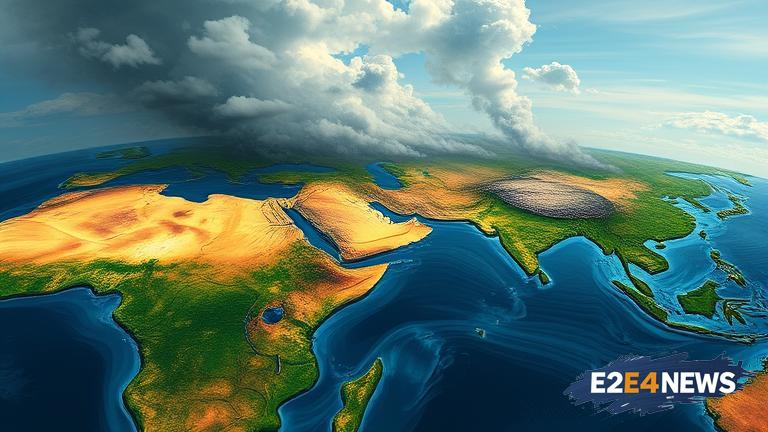The world is facing an unprecedented crisis as climate change continues to wreak havoc on global ecosystems. Rising temperatures, melting ice caps, and extreme weather events are just a few of the many symptoms of this devastating phenomenon. The consequences of climate change are far-reaching, affecting not only the environment but also human health, economies, and societies as a whole. One of the most significant impacts of climate change is the loss of biodiversity, as many species struggle to adapt to the changing conditions. The polar bear, for example, is facing a significant threat to its survival due to the melting of sea ice, which is essential for its hunting and breeding habits. Similarly, coral reefs, which are home to a vast array of marine life, are being destroyed due to rising ocean temperatures and acidification. Climate change is also having a profound impact on human health, with increased instances of heat-related illnesses, respiratory problems, and the spread of disease. Furthermore, climate change is affecting global food systems, leading to crop failures, reduced yields, and changed growing seasons. The economic implications of climate change are also significant, with estimated costs running into trillions of dollars. The World Health Organization has warned that climate change is one of the greatest threats to human health in the 21st century. In addition, the United Nations has emphasized the need for urgent action to mitigate the effects of climate change and to transition to a low-carbon economy. Despite the challenges, there are many reasons to be hopeful, as governments, businesses, and individuals around the world are taking action to reduce their carbon footprint and invest in renewable energy. The development of new technologies, such as electric vehicles and solar panels, is also helping to drive the transition to a more sustainable future. However, much more needs to be done to address the scale and complexity of the climate crisis. The clock is ticking, and it is essential that we take immediate and collective action to reduce greenhouse gas emissions and protect the planet for future generations. The BBC has been at the forefront of covering the climate crisis, providing in-depth analysis and reporting on the latest developments and research. By raising awareness and promoting education, we can work together to create a more sustainable and equitable world for all. The fight against climate change requires a global response, and it is essential that we work together to address this pressing issue. The time for action is now, and we must all play our part in reducing our carbon footprint and protecting the planet.
